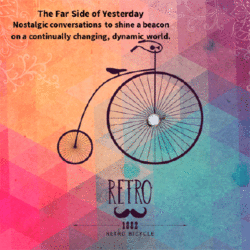We have been given an unparalleled gift of time that has transformed aging in a single generation. We are living longer.
Those of us who are pigeonholed as seniors, the over the hill generation or, kindlier, as middle-aged or older adults have spent a lifetime chasing the carrot, blissfully convinced that we would land in the Magic land of Retirement. Retirement was the consolation prize for growing older. We visualized lolling on the beach, a cold drink in one hand and a romance novel in the other. We expected to live in the present and not have to worry about the future.
In the new reality, many of us find that we have not saved up enough money to sustain us through our increased lifespans. We are living in a broken society on a fixed income. Options appear to be limited to earning more money or spending less. Easier said than done.
Traditional retirement plans are vanishing, the cost of living rises daily, unexpected expenses pop-up and many of us are coping with some form of chronic health condition. As new technologies appear, traditional functions slide into obsolescence. As businesses tend to hire and train younger less experienced people for less money, many oldies but goodies find a padlock on the job opportunity door.
It seems to be an undeclared fact that some nebulous, unforeseen consequence lurks out there ready to pounce when we least expect it. Perhaps it is unanticipated medical bills, the shameless cost of necessary medications, major home repairs, financial exploitation, a divorce that splits assets. More and more, children move in because they have no money. It is possible that the return on savings and investments you counted on didn’t materialize. For many, the projected senior income stream was dammed by inflation and holes necessarily punched in savings and investments could not be plugged.
What’s a person to do?
You could reinvent yourself. It is a perfect time to explore and seek new ways of being productive, fulfilled or just big-smile happy.
Many people work past age 65. They remain healthy and productive well into their 80s and even 90s and do not relish defaulting the rest of their lives to Netflix. They know they still have a lot left to contribute and cling doggedly to their independence.
Here’s a thought from Betty White “Retire? I’m not sure the meaning of that word, I hear it once in a while, out there somebody did it. But no. I’m going to die in the saddle.”
If you are so inclined, customize a saddle that fits you. And while you are at it, close the dictionary and redefine success in a way that is meaningful to you.
I know. It is cozily familiar in your comfort zone. No reason to unlatch the trap door and fall helplessly into a hostile, egocentric world of unpleasant minions. Except, if you don’t strap on your climbing gear, you can’t reach that illusive peak you’ve always dreamed of conquering. I sense some of you counting off on your fingers some darn good reasons not to engage. You only have 10 tries.
Lucille Ball eloquently remarked, “I’d rather regret the things I’ve done than regret the things I haven’t done.” Score one for the red head.
If you have an ample income, you can delve into travel, art and other uncountable activities that will expand your mind and spirit. Consider volunteer work. There is much begging to be done that might benefit from your lifetime store of learning, experience and commitment. You have no idea how welcome you will be. It could change your life as well as the life of someone you never knew before.
If finances are a stumbling block, find or invent a job that makes it easier to get out of bed each morning; one that utilizes the skills you’re already confident about or one that challenges you to expand your talents. This choice adds some structure to the emancipation of retirement.
It might not be what you want to hear, but many of us have reached that fork in the road I discussed in the last blog. One fork leads deep into a nearly impenetrable forest and the other path, while winding, pitted and strewn with rocks, is wide enough to keep moving forward. You will encounter a cadre of Entrepreneurs on that road. Become one of them. Only you can decide the life that’s right for you, but with the uncertainty of entrepreneurship also comes awesome freedom and accountability.
Even if you just figured out email, there are a ton of reasons for 50+ adults to embrace the role of entrepreneur and create an online persona. It beats grinding your teeth in frustration as an employee working to make someone else’s dream come true.
If you are still following my blogs, I am convinced that you are open minded, courageous and imbued with optimistic hope. With that image swirling lightly across my thoughts, I hope to debunk the myth of the young entrepreneur and leave you with a future vision that will have you scrambling to reboot your computer.
It’s widely believed that the most successful entrepreneurs are young. Bill Gates, Steve Jobs, and Mark Zuckerberg were in their early twenties when they launched what would become world-changing companies. Intriguingly, if you study these notable outliers, you learn that the growth rates of their businesses in terms of market capitalization peaked when these founders were middle-aged. “Steve Jobs and Apple introduced the company’s most profitable innovation, the iPhone, when Jobs was 52. Jeff Bezos and Amazon have moved far beyond selling books online, and Amazon’s future market cap growth rate was highest when Bezos was 45. Overall, the empirical evidence shows that successful entrepreneurs tend to be middle-aged, not young.1”
Benjamin F. Jones, an economist at the Kellogg School of Management at Northwestern University found that the average age of innovators is steadily rising. The average age of greatest achievement for Nobel Prize winners and great tech inventors has increased six years, to 45, in the 20th century. Feeling better?
True, young entrepreneurs have an advantage in social media and app building. They were born with a lifetime subscription to U tube and perched in their high chairs with a baby rattle in one hand and an iPad in the other. They were assigned Usernames before they learned to crawl over the crib rails.
However, stop and consider that it is more difficult to learn how to motivate and inspire employees, manage finances, market and sell services and products than to write code for a cellphone. Such accomplishments are critical to running and building a business. Older entrepreneurs own that experience and can claim that advantage. In addition, we have established buying power and a real-life understanding of how the markets work. As the 50+ generation becomes more familiar and comfortable with Internet and mobile technologies, they will undoubtedly give those whippersnappers a run for the money.
The current technology-shift offers ways to tackle global social problems of health, energy, education, hunger that improve our lives. Intrinsic to this becoming reality is knowledge and experience in science, medicine, engineering, biotechnology and crossover disciplines. It also demands that we understand how people relate to each other, their environment and the consequent outcomes and problems. These prized skills are not handily bound up in manuals and brochures with easy to follow directions. They compel experience that comes with age. Senior entrepreneurs are most likely to have an abundance of that component.
Each phase of life brings a new set of priorities. Advancing lifestyles and circumstances continuously amend our views of the world. That is why I encourage you to discard the stereotypes of feeble, confused and incapable seniors and revel in a new crusade. Today, Seniors face new challenges and will discover impossible solutions.
As Apple’s “Think Different” commercials famously commented:
Here’s to the crazy ones. The misfits. The rebels. The troublemakers. The round pegs in the square holes. The ones who see things differently. They’re not fond of rules. And they have no respect for the status quo. You can quote them, disagree with them, glorify or vilify them. About the only thing you can’t do is ignore them. Because they change things. They push the human race forward. And while some may see them as the crazy ones, we see genius. Because the people who are crazy enough to think they can change the world, are the ones who do.
P.S. As I was writing this, it occurred to me that I should be more assertive in following my own beliefs. The Internet is saturated with information and content but it is overwhelmingly complex and, more and more, can be treacherous. I am not an expert on the internet, but I am pretty good at research and chock full of perseverance. I am wondering if I can help. What can I do? What do my friends want to know? What kind of knowledge can I acquire that I can pass along? I would welcome your suggestions and ideas.
I’m going to put on Eye of the Tiger by Survivor and see what I can come up with.
1 Research: The Average Age of a Successful Startup Founder Is 45; (Azoulay, Benjamin, Kim, & Javier, 2018); Harvard Business Review; July 11, 2018

Congratulations to Wanda Larsen for submitting the phrase “Time in a Bottle.” It is the perfect image for what we are all seeking. Thanks Wanda.


